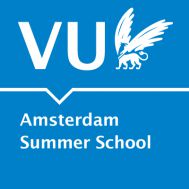2 August 2024
on course website
Feeding the Billions: Challenges and Innovation in Food and Water Security
There are 7.8 billion people to feed today, and this number is expected to increase to about 10 billion by 2050. More food is needed, and more food means more water for crops and livestock to grow.
This course is evidence-based and addresses food and water challenges and innovative interventions from various disciplinary perspectives and socio-cultural contexts, using real-life examples. Interactive theoretical lecture sessions are alternated with debates, group work and a field visit. Students will benefit from discussions with their peers from different disciplinary backgrounds and countries of origin. At least five of the following topics will be covered:
• Drivers of food and water security
• Food systems and transdisciplinary research
• Water management in flood-prone areas and water-scarce areas
• Food (and water) prices and food economics
• Innovative interventions to feed the world more sustainably
We bring practice to the classroom by using real-life examples from the Netherlands and from projects in Africa and Southeast Asia. Assessment is based on student participation and the preparation of a digital poster (1 per group), based on peer-reviewed scientific journals supported by other, non-academic, yet societal relevant articles, to be presented during class (by means of an oral group presentation).
Course leader
C.F.A. van Wesenbeeck
Target group
The target audience is advanced Bachelor's and Master's students, Dutch Nationals as well as International students, and would be open for students from all faculties.
Course aim
After successfully completing this course, students will:
- Have a broad understanding of the concept of FNS. - Be able to identify, calculate and interpret basic indicators for FNS and judge their relevance ·
- Be familiar with and understand the challenges to achieve FNS.
- Be familiar with and understand the challenges posed by FNS failure for societies and individuals.
- Be familiar with and understand the rationale for possible interventions to improve FNS.
Credits info
3 EC
Contact hours: 32
Fee info
EUR 1310: Tuition fees one-week course
VU Students/PhD candidates and employees of VU Amsterdam* or an Aurora Network Partner €525
Students at Partner Universities of VU Amsterdam €680
Students and PhD candidates at non-partner universities of VU Amsterdam €785
Professionals €995
Early Bird offer
Applications received before 15 March (14 March CET 23:59) receive €50 Early Bird discount!
Scholarships
VU Amsterdam Summer School offers two kinds of scholarships: the Equal Access Scholarship and the Photographer Scholarship. More information can be found on the VU Amsterdam Summer School website.
Register for this courseon course website

